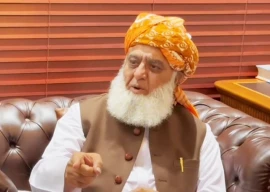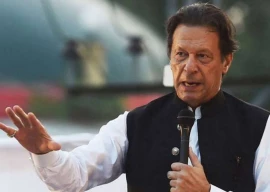Ebola is a very dangerous disease and there is no vaccination for it. Humans can get the infection through contact with infected animals, as well as from their products. It can also spread from human-to-human contact through secretions, such as saliva, blood, urine, faeces, contaminated needles and handling of corpses. The virus can break its victim within days, causing severe muscular pain, headaches, vomiting, diarrhoea, and in most cases, unstoppable bleeding as the patient’s organs break down and seep out of their bodies.
I was in West Africa for a year and came back recently. During my stay, I witnessed the start of Ebola in the region. There were some warning signs quite early and organisations, like the WHO and Doctors Without Borders had warned about its outbreak. Unfortunately, the governments of the region did not pay heed to these warnings and the international community realised the gravity of the situation only when it had spread to other countries. Unfortunately, there were no testing laboratories for Ebola in West Africa and the symptoms are similar to other diseases, like pneumonia and cholera, so even doctors could not diagnose it properly.
Nearly six months after the first case of Ebola was reported to the WHO, the UN General Assembly and the Security Council have approved resolutions creating the UN Mission for Ebola Emergency Response to contain the outbreak .This is the first time in history that the UN has created a mission for a public health emergency. The mission will bring together the vast resources of the UN agencies, funds and programmes, to reinforce the WHO’s technical expertise and experience in handling disease outbreaks.
Ebola has not only exposed the weak healthcare system in West Africa, but its spread will also have far-reaching socio-political and economic implications. The region is sure to suffer on the economic front. Airlines have stopped their flights to the region. Visitors and investors are fleeing the area. Unemployment is already very high and this crisis will further deepen the economic woes of the people. The governments of the regions are weak and dependent on international agencies, like the UN and the Economic Community of West African States, for their survival. The crisis has exposed their inherent weakness and will further weaken these fragile democracies.
The healthcare system in Pakistan is not good either. Diseases like polio, tuberculosis, hepatitis and pneumonia are on the rise here. Though there may not be any direct threat of Ebola here, we have still failed to appreciate the fact that more than 3,000 Pakistani troops are stationed in the West African region. Similarly, many Pakistanis are working in various international humanitarian agencies there. And then there are people who left Pakistan for greener pastures, but somehow ended up in West Africa and are doing menial jobs there. They interact with the locals and are living in the poor areas, which are more susceptible to the spread of the virus.
The WHO has warned that Europe is almost certain to see further cases of Ebola, with the disease having the capacity to spread from China to the US. The US has introduced temperature screening of passengers arriving from West Africa at five American airports. It is high time Pakistan also began screening of travellers travelling from West Africa. There are serious chances that this virus can spread to Pakistan, so there is a need to take immediate measures in this regard before it is too late.
Published in The Express Tribune, October 16th, 2014.
Like Opinion & Editorial on Facebook, follow @ETOpEd on Twitter to receive all updates on all our daily pieces.
COMMENTS (9)
Comments are moderated and generally will be posted if they are on-topic and not abusive.
For more information, please see our Comments FAQ
1724760612-0/Untitled-design-(12)1724760612-0-405x300.webp)
















Due to the failure of health care system, diseases like polio, tb and hepatitis is on the rise
@rational: For your review I am posting an express article for you.
http://tribune.com.pk/story/771081/breaking-its-own-record-8-new-polio-cases-push-pakistans-total-to-202/
Peshwar is not polio free and not is KPK.
Please share the WHO report where it says peshawar is polio free. Secondly WHO declares countries polio free not cities. It is PTI who so badly wanted to befriends taliban , who are against polio vaccinations, that this virus is spreading across country.
@Cobra Commander: actually polio is rampant in fata areas and they come under the control of the Federal Government. Peshawar has been declared polio free city by WHO etc in the latest report, so kindly get your facts straight first.
Dengue is spreading very fast in Punjab and Punjab government of PML(N) is doing nothing about it,so neither will Federal Government of PML(N) will do anything about stopping Ebola spreading in Pakistan.
@Sadiq: So you want us to stop screening for ebola and let it flourish in pakistan? I dont get your comment at all.
@Sara: Stop trying to malign PML-N government at every chance you get. Polio is rampant in KPK which is under PTI government. The few cases in Punjab, only two, are from kids whose domicile is from KPK. PML-N did an outstanding job in containing dengue virus last few year. Compared with KPK and Sindh where dengue is still creating havoc.
Its a bit laughable. The country that the world is scared of for spreading polio now wants to screen others.
All travellers crossing borders, either through land, air or sea border should be screened. Suspected carriers mist be quarantined. Health facilities, including personnel of less developed countries should be strengthened while robust/massive health education machinery should be in place to sensitise all citizens irrespective of the location whether urban or rural dwellings.
Well written article..
In terms of healthcare the current PML-N government is doing a poor job. No steps have been taken to ensure the disease does not reach Pakistan. Furthermore, there are no screening/detection facilities available yet.
The PML-N government should immediately stop wasting money on VIP protocols and political activities and the parliament should for a change stop discussing PTI and instead think about measures to keep Pakistan safe from this virus.
Its very good article on a very important topic..I never knew Pakistan was also under threat.. Request the concerned authorities to take some immediate measures.